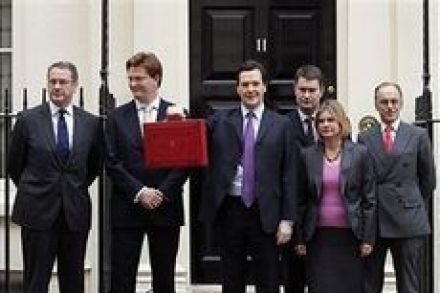Why Cameron is so keen on start ups
Cabinet ministers were relatively relaxed about yesterday’s march against the cuts—and rightly so. It did not make a sea-change in British politics and merely served to underline the lack of a credible alternative to what the coalition is doing. But what does worry ministers is where the growth is going to come from in the economy. The corporation tax cuts and the planning law changes are designed to help big business. But what the Prime Minister is more interested in is small businesses; hence tomorrow’s launch of Start-Up Britain by the Prime Minister. The scheme is designed to offer help—both technical and financial—to those looking to start a business. The

















